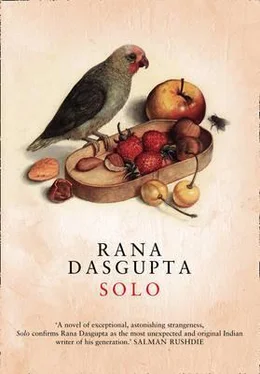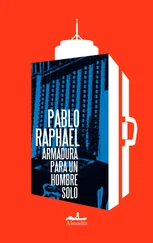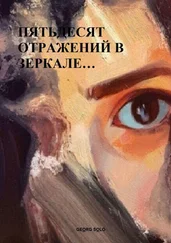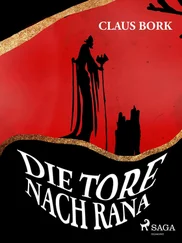He unwraps the cellophane from Boris’s CD, and puts it into the player. He pours himself a drink from the minibar and lies down on the bed. Water has seeped into the corner of the ceiling of this expensive hotel, yellowing it, and making stale bubbles. Irakli presses Play on the remote.
Boris plays the crepuscule encounter , and the eighty leagues of sleep . The fulminating spiral-hair , the pale glow in the deep . It is beautiful and poisonous. Irakli lets himself be swallowed by the hungry ear. He bleeds blindness and weaves a mattress of vertigo; he wishes he could sacrifice himself to this loveliness. Boris plays the Arab shirt she saw and loved, the wart-faced Tetrarch and the falcon on his glove . Irakli weeps in the dark room, for this is perfect sound. Above his stone head, a congregation of wild scintillas spend themselves in the night.
Through the music, Irakli hears Khatuna and Plastic come back to the room next door. They too have left the party early, and Irakli hears the inarticulate bark of their discord. While Boris plays the insect mother, while he thanks the steamy air, Irakli can hear irate sounds coming through the wall, which ebb and flow, gather and evolve. The noises become rhythmic, and soon the sex is loud and undeniable.
The CD comes to an end.
Irakli lies in the darkness, listening. Plastic and Khatuna stab each other with obscenities, and Irakli coils up in a whorl.
At length he gets up, sits down at the desk, and writes on the hotel branded notepaper.
The dream of the embryo on the night before birth
The dream
Held prisoner in my dark head
Wants to escape, and prove its innocence to everyone on the outside .
I hear its impatient voice,
See its gestures, its furious
Menacing state .
It doesn’t know that I too am only someone’s dream.
If I were its jailor
I’d have set it free .
Irakli reads it back to himself, stands up, and tidies his belongings. He takes Boris’s CD out of the player and puts it back in its case. He takes a look around to check that everything is just so. He opens the sliding door to the balcony. He climbs on the rail and sits for a moment, his feet swinging above twenty-one floors of void. Then he lets himself go.
21
WHEN BORIS ARRIVED at Khatuna’s New York apartment, he found the front door standing open.
Khatuna had a scarf around her head and was packing up the house. She looked up when Boris came in, but she did not greet him. She was shrouding things in bubble wrap. Paintings and vases, and many other objects whose shapes had been obscured in the wrapping. She was gagging their mouths with plastic.
The air stank of cigarettes.
Boris looked over the piles of clothes arranged in rows across the wooden floor.
‘Are you leaving?’ he asked.
‘Yes.’
He nodded. He saw clothes of Irakli’s that he recognised. There was the shirt that was drenched in the rain on the night they had met. There was a pen he used to carry. On the top of a pile of books he saw the volume of poetry he had given to Irakli after returning from tour.
Boris listened to the slight noises in the room: the hum of glass, the collision of dust, the echo of before. There was nothing here that did not whisper of Irakli.
He imagined Khatuna returning to this place after the horror of LA. He imagined how she would have staggered, walking in, when she saw everything so unchanged. He saw her fingering Irakli’s imprint upon the rooms: his food half eaten in the fridge, his pocket coins spilled upon the sofa. He saw the devastation of a book half read, and an unwashed shirt. He saw her following the source of her brother’s radiation, looking at the parrot and the hollows in his half-made bed, and coming, eventually, to the pile of papers on his desk, where she stopped and placed her hand.
He could see all this vividly — as if it had been left behind in the room, too barbed for time to swallow away.
She had put Irakli’s manuscript in the middle of the dining table, and Boris could read the title. Androgyne .
He saw that the shelter he had built out on the balcony had been removed, and there was no sign of the pig. Everything had been fixed and cleaned.
The parrot was perched on the table. It had lost most of its feathers, and was covered in patches of scaly skin.
‘What happened to the parrot?’
‘Nothing happened. It decided to pull out its feathers,’ said Khatuna.
She lit a cigarette. Boris stroked the parrot’s bald head.
‘I came to read Irakli’s poems,’ he said. He gestured to the manuscript on the table.
‘Don’t say his name,’ she said. ‘I don’t want you to say a word about him.’
But she didn’t stop him when he picked up the manuscript.
He took it out on to the balcony and slid the door closed behind him. He read the book from beginning to end. When he had finished he stood with his hand on the rail of the balcony.
His eyes were red when he came in. He said,
‘It’s a wonderful book. It’s a wonderful, wonderful book.’
He waited for Khatuna to say something, but she was intent on her packing. He said,
‘What will you do with it?’
‘I’ll publish it. Even if I have to sew the fucking pages together myself. The whole world is going to know my brother was a poet.’
Boris put the manuscript back on the table. He picked up a button from the floor. He said,
‘I know you don’t like me. But I loved Irakli too, and I want to talk about what happened. I still don’t understand.’
Khatuna looked at him for the first time. There were hollows around her eyes. She said,
‘I’m not talking to you about anything, Boris.’
She was angry. She said,
‘Don’t think just because Irakli is gone that you and I are friends. I hate you and I wish he’d never met you. I wish I’d followed my instincts and made sure he didn’t get involved with you. I knew it would end badly, I knew it. I’m not going to talk about anything with you. Fuck you.’
Boris said,
‘I’ve never—’
‘You have no idea,’ shouted Khatuna, ‘what I’ve been through in the last few weeks. You have no idea what an effort it was just to pull myself out of LA, when I only wanted to stay with him and die. You have no idea. He was the one thing I couldn’t lose , he was the one thing that was absolutely necessary to me. You know nothing about me. I’ve lost everything many times and I can get through that, but I cannot lose my brother.’
Khatuna’s grief suddenly took her over. She fell to her knees, crying. Her face was terrible, and between her sobs she sucked loudly for breath. Boris went to her and took her in his arms, absorbing the spasms of her body.
She calmed down. She pushed him away and lit another cigarette.
‘I’m not ashamed of crying,’ she said, sitting on the floor.
He took one of her cigarettes too, though he never smoked. For a time there was only the sound of the two of them inhaling and exhaling.
Boris said,
‘Are you going back to Tbilisi?’
‘I’m going to Baghdad,’ she said. ‘I’m going to help design the new security city. Renovate the old palaces of Saddam Hussein.’
She took a drag of her cigarette.
‘I have to go on living,’ she said. ‘I’m not dead. I have to put myself some where and do some thing . I want to see a city at war. I’m fed up with this boring place. I want a place with real men, where real things happen.’
Boris did not know what to say. He stubbed out his cigarette, which tasted disgusting. He tried to conjure Irakli back into the room, picturing him on the sofa, where he had seen him many times. It was strangely hard, and he felt his memories, too, were being slowly taken from him.
Читать дальше
Конец ознакомительного отрывка
Купить книгу












